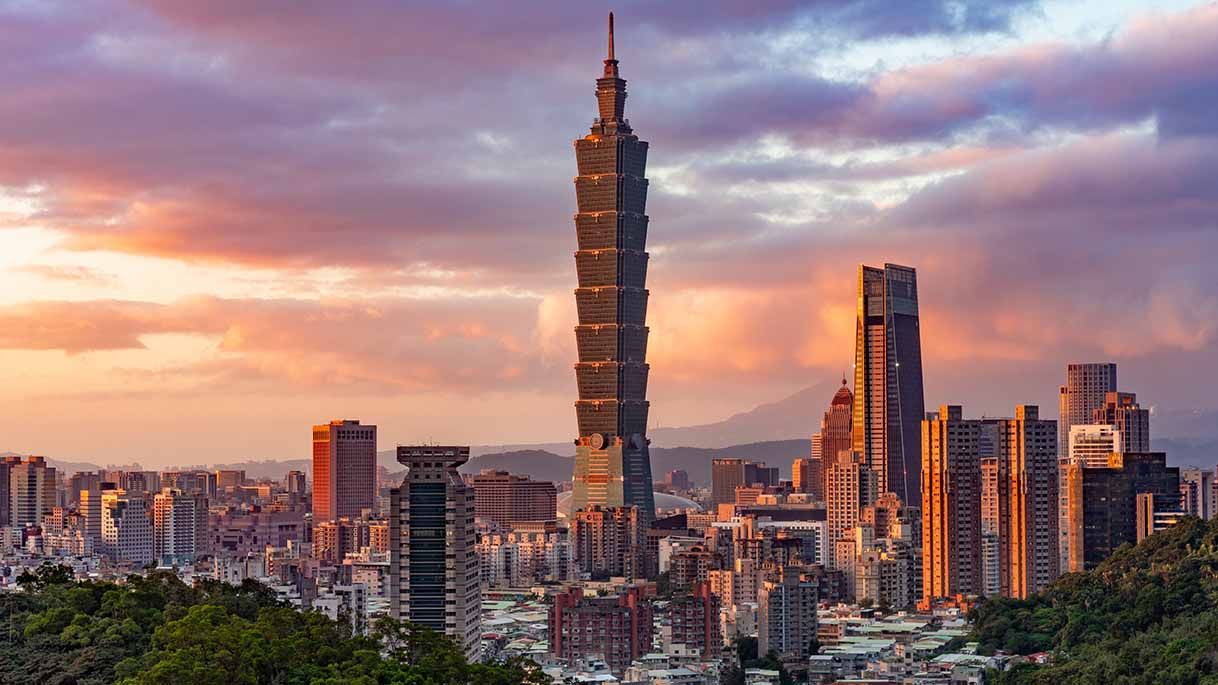Executive Brief

US-Taiwan Relations
One China PolicyPresident Biden reiterated at his G7 press conference on 21 May that the US will maintain its One China policy.
- Biden emphasized, “China or Taiwan, neither territory can independently declare what they’re going to do. Period. There has to be a mutually agreed outcome...we’re sticking by that. We’re not going to tell China what they can do. We made it clear that we don’t expect – we don’t expect Taiwan to independently declare independence either. But in the meantime, we’re going to continue to put Taiwan in a position where they can defend themselves. And there is clear understanding among most of our allies that, in fact, if China were to act unilaterally, there would be a response. There would be a response.”
On 25 May the US Defense Department airlifted a batch of FIM 92 Stinger air defense missiles to Taiwan. This was part of the $500 million US arms aid package given to Taiwan using the US president’s drawdown authority, which repurposes the US weapons stockpile as was done in the Ukraine case. Taiwan’s Defense Ministry confirmed the delivery.
Nuclear UmbrellaOn 22 May Taiwan’s Foreign Minister Joseph Wu told Taiwan’s legislature that Taiwan is in talks with the US to place Taiwan under the US nuclear umbrella, but the details cannot be disclosed publicly. Wu’s remarks triggered significant attention across the Taiwan Strait.
- Some Taiwanese analysts say the US nuclear umbrella will not make Taiwan safer but provoke the mainland. Moreover, it would be a “catastrophe” for Taiwan since the island will be destroyed in a nuclear war. Others believe the US will not agree to Taiwan’s request and consequently, Taiwan should develop its own nuclear weapons.
- Some Chinese analysts believe Wu’s remarks were mostly for propaganda purposes. If the US agreed to provide Taiwan nuclear protection or Taiwan started to develop its own nuclear weapons, that would signal permanent separation of Taiwan with the mainland and, therefore, it would mean immediate military confrontation. The US would have to think carefully before using nuclear weapons against China in a Taiwan conflict.
On 25 May, Taiwan Defense Minister CHIU Kuo- cheng stated that nobody had contacted him, and he had no information on the matter. Chiu, a retired Taiwan general, told Taiwan’s legislature, “Once a war starts, it will be truly disastrous” and there is no longer a distinction between the frontline and rear for Taiwan. He emphasized that the Taiwan military would not provoke hostilities but would prepare for them.
Indigenous Weapons Prospects a Non-StarterIn the early 1970s Taiwan had a nuclear weapons development program that it shut down in 1976 under pressure from the US and the international community.
In 1978, before the US broke diplomatic ties with Taiwan, Taiwan asked the US to provide nuclear protection, but was turned down. Taiwan then restarted its own nuclear weapons program secretly in 1979.
In January 1988, a top scientist of Taiwan’s nuclear weapons program defected to the US and exposed Taiwan’s ongoing program. Under US and IAEA pressure, Taiwan closed the program in 1991.
- Although Taiwan undoubtedly possesses the technical knowledge to develop nuclear weapons, any efforts to produce the needed fissile materials and develop delivery systems would face insurmountable obstacles and broad opposition.
On 14-19 May YOU Si-kun, President of Taiwan’s Legislative Council and a staunch advocate for Taiwan independence, visited the US and met with 34 US Congressional members. Taiwan media reported that the US diplomatic mission in Taiwan— American Institute in Taiwan—and the Taiwan government originally did not support You’s visit out of concern that it would trigger another round of cross-Strait tensions. Both the US and Taiwan governments downplayed the visit.
The US State Department said there was no information about any meeting between You and US government officials; Taiwan government said You’s visit came at the invitation of US think tanks. Although You was spotted visiting US House Speaker Kevin McCarthy’s office, neither McCarthy’s office nor You reported their meeting. China did not comment on the visit.
US-Taiwan Trade
On 19 May Taiwan’s Office of Trade Negotiations announced the conclusion of first phase negotiations for the US-Taiwan Initiative on 21st Century Trade, which was launched in June 2022 with the goal of an eventual free trade agreement. Phase One covers customs and trade facilitation, regulatory practices for services, anti-corruption, and small- and medium-size enterprises. Taiwan media said the agreement will first benefit Taiwan’s communications, medical equipment, and pharmaceutical sectors.
Download our recent executive brief to keep reading.